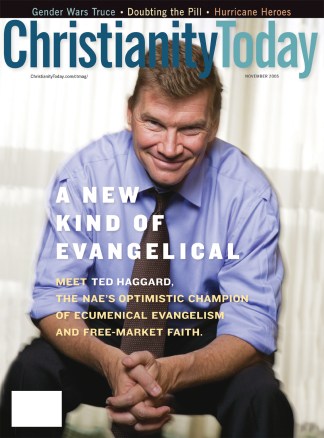Perhaps the time is right for egalitarians and complementarians to work together to further the cause of Christ and advance the gospel of life in a culture increasingly marked by violence, decay, and death. I want to suggest a tentative agenda—nine tasks that I believe could be helpfully pursued by persons of goodwill and high moral imagination from both communities.
1. Study the Bible
Egalitarians and complementarians have, of course, been studying the Bible overtime on gender issues. But apart from several books on the subject that present varying views, much of this work exists in discrete silos of scholarship that lack the dynamism and cross-fertilization of an interactive approach.
2. Celebrate the Great Tradition
Evangelicalism at its heart is a renewal movement within historic Christian orthodoxy. Egalitarians and complementarians stand together on the solid foundation of Jesus Christ—the only foundation that can be laid, Paul says—expressed in the great creeds and teachings of the church. These are not trivial theological ideas, but the very heart of the gospel message, which Paul declared in 1 Corinthians 15 to be “of first importance.”
3. Share Testimonies
People change their minds from time to time. I would like to hear stories from those who have undergone conversions on this issue. Such testimonies can help us understand why certain ideas are persuasive, causing us to ask where we sense the Holy Spirit may be leading us. I would like to hear a discussion, for example, between Craig Keener, an egalitarian scholar who used to be a complementarian, and Father Patrick Henry Reardon, an Antiochian Orthodox priest who used to be an Episcopalian egalitarian.
4. Discuss the Naming of God
I propose a symposium of complementarian and egalitarian scholars, liturgists, and theologians on gender-inclusive language for God. Whatever one may think about gender-inclusive language for humans, the use of feminine appellatives for God seems to be of a very different order. While no complementarians, to my knowledge, would countenance gender-inclusive language for God, the best arguments against this practice have been put forth by egalitarians such as the late Elizabeth Achtemeier, Northrup Frye, Robert Jenson, Geoffrey Wainwright, Elizabeth Morelli, Donald Bloesch, Thomas C. Oden and, most recently and most thoroughly, John W. Cooper. This topic could benefit from the careful, exegetical study that both complementarian and egalitarian scholars have shown themselves capable of doing.
5. Advocate Life
In a culture of death, egalitarians and complementarians can work together to oppose abortion on demand, an issue on which egalitarians stand together with complementarians against mainstream feminism (with the exception of the tiny Feminists for Life group).
6. Support Traditional Marriage
While demonstrating a Christian and neighborly approach to all people, including homosexuals, egalitarians and complementarians can agree that homosexual activity is not a God-ordained lifestyle that should be approved within the Christian community. Certainly both can agree to welcoming but not affirming homosexuals and to supporting the understanding of marriage as a God-ordained union of one man and one woman.
7. Repudiate Abuse
Every person I have read in the current discussion believes Christians should not countenance any form of sexual abuse. Why not form a joint complementarian-egalitarian task force to study this issue, propose a concrete action plan for pastors and congregations to use in dealing with sexual-abuse cases, and develop literature for churches, colleges, and seminaries to use in raising the consciousness of the evangelical community on this matter?
8. Pray Together
In a lecture at Regent College several years ago, Mary Stewart Van Leeuwen challenged her audience to remember that issues raised in gender discussions could not be resolved by arguments, organization, and church political strategies alone, but that such matters required serious, prayerful engagement. What about a round of prayer meetings in which representatives of both communities prayed for one another, asking the Holy Spirit to illuminate our study of the Scriptures and our joint projects on behalf of the least, the last, and the lost all around us?
9. Support Missions
Surely egalitarians and complementarians agree that Jesus Christ is the only way of salvation for people everywhere. We can find ways of working together to support the world Christian mission, giving special attention to our brothers and sisters in Christ who struggle in various parts of the world against persecution, harassment, poverty, and isolation from other believers. Also, both sides can agree to address the distortions of male-female relationships that permeate some developing societies.
Copyright © 2005 Christianity Today. Click for reprint information.
Related Elsewhere:
A Peace Plan for the Gender War | How to love your egalitarian or complementarian neighbor as yourself.
Earlier CT articles on gender issues include:
Creating Husbands and Fathers | The discussion of gender roles moves beyond ‘proof-text poker.’ (July 19, 2004)
Editor’s Bookshelf: Raising Up Fathers | An interview with Maggie Gallagher (July 19, 2004)
Affectionate Patriarchs | In the popular imagination, conservative evangelical fathers are power-abusing authoritarians. A new study says otherwise. (Aug. 6, 2004)
Headship with a Heart | How biblical patriarchy actually prevents abuse. (Feb. 10, 2003)
Nuptial Agreements | Two models of marriage claim biblical warrant and vie for evangelicals’ allegiance. Advocates of both claim good results. But do we have to choose? (March 15, 2003)
Adam and Eve in the 21st Century | When it comes to gender roles, CT readers oscillate between complementarian and egalitarian ideas. (March 15, 2003)
CT Classic: Adam and Eve in America | In 1990, readers first revealed what they thought it means to be created male and female. (March 15, 2003)
Can We Talk? | We may never resolve all our differences about women in leadership, but we can help each other toward better understanding. (March 15, 2003)
A Different Kind of Women’s Lib | A dispatch from the Council for Biblical Manhood and Womanhood conference. (October 12, 2001)
Seahorses, Egalitarians, and Traditional Sex-Role Reversal | A dispatch from the Christians for Biblical Equality conference. (July 11, 2001)
The Next Christian Men’s Movement | Just because Promise Keepers no longer fills stadiums doesn’t mean men’s ministry is dead. Far from it. (Sept. 15, 2000)
What Has Gender Got to Do with It? | Wesleyan-Holiness churches were led by women long before the rise of the modern women’s movement. (Sept. 12, 2000)
A Woman’s Place | Women reaching women is key to the future of missions. (Aug. 4, 2000)
Integrating Mars and Venus | Gender-based ministries may be effective, but are they biblical? (July 12, 1999)
Finding Power in Submission | Two feminist scholars write about women you’ll recognize. (Apr. 27,1998)










